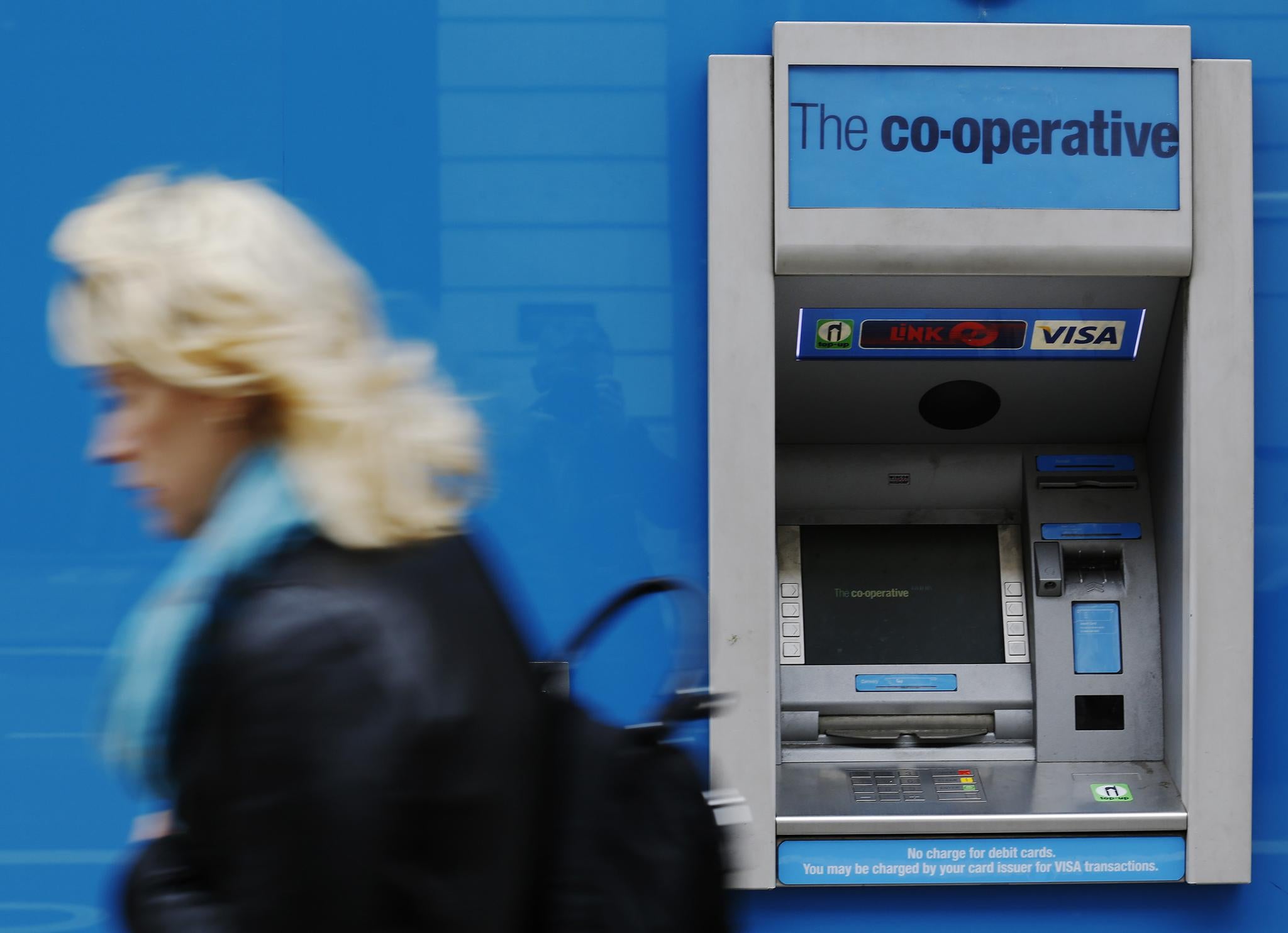Poorest UK areas have lost more free ATMs than richer ones, Which? report finds
‘People in more deprived communities tend to rely heavily on cash,' say researchers

Your support helps us to tell the story
From reproductive rights to climate change to Big Tech, The Independent is on the ground when the story is developing. Whether it's investigating the financials of Elon Musk's pro-Trump PAC or producing our latest documentary, 'The A Word', which shines a light on the American women fighting for reproductive rights, we know how important it is to parse out the facts from the messaging.
At such a critical moment in US history, we need reporters on the ground. Your donation allows us to keep sending journalists to speak to both sides of the story.
The Independent is trusted by Americans across the entire political spectrum. And unlike many other quality news outlets, we choose not to lock Americans out of our reporting and analysis with paywalls. We believe quality journalism should be available to everyone, paid for by those who can afford it.
Your support makes all the difference.Free-to-use cash machines are vanishing more quickly in deprived areas than in affluent ones, new research shows.
Which? said its analysis shows nearly one in 10 free cashpoints across the country had closed or switched to fee-paying during a 17-month period after changes to how the network is funded were set out.
Reductions to the fees card issuers pay to ATM operators have sparked fears that "cash deserts" could be created, with bank branches also closing.
Consumer campaigned are pressing chancellor Sajid Javid to implement a cash guarantee for those who need it.
Which? said analysis found poorer communities have been hardest hit by the changes, with those most reliant on cash and who can least afford to pay for withdrawals facing charges or being forced to travel to access money for free.
Looking just at the numbers of free ATMs which had been converted from free to fee-charging, Which? found that the most deprived areas across the UK had seen a reduction of 979 free-to-use machines - equivalent to 5.7 per cent of their ATM network.
The least deprived areas lost 223 free cashpoints - equivalent to 3.9 per cent.
The consumer group used data from ATM network Link to make the findings.
Which? said Birmingham Ladywood, which has a large proportion of its ATMs in deprived neighbourhoods, saw the biggest losses, with a reduction of 47 free machines.
This was followed by Bristol West which lost 40, Manchester Central which lost 36 - and Belfast South and Cardiff Central which lost 34 each.
Which? chief executive Anabel Hoult and Natalie Ceeney, chairwoman of the independent Access to Cash Review, have written to Mr Javid, calling on the government to take action to guarantee access to cash.
Ms Ceeney said: "Six months ago, we presented recommendations of what steps should be taken to make sure no one was left behind.
"With ATM numbers declining, cash use dropping, and more and more shops not accepting cash, our fear is that the UK will fast go cashless, leaving millions of people behind."
Jenny Ross, Which? money editor, said: "We know that people in more deprived communities tend to rely heavily on cash, so it's deeply concerning that those who can least afford it are being hit with the extra burden of hefty fees to access their own money as free cashpoints close at an alarming rate."
Which? assessed whether areas were deprived based on the Indices of Multiple Deprivation (IMD), using factors such as employment, income, crime and healthcare.
Neighbourhoods were grouped into 10 bands - with those in the lowest two classified by Which? as the most deprived and those in the highest two the least deprived.
John Howells, chief executive of Link, said: "Which?'s report rightly points out that it is the less well-off and more remote parts of the country that are at growing risk of losing free cash access."
He said the number of fee-charging charging ATMs, while showing a recent increase, is still around the same levels seen at the start of 2018, and much lower than an all-time high in 2007.
Mr Howells said: "Pay-to-use withdrawals remain low at around 3% of transactions."
A Treasury spokesman said: "Technology has transformed banking for millions of people, but we know that many still rely on cash.
"That's why we're co-ordinating work across government, regulators and industry so we can protect access for everyone who needs it.
"Part of this work includes investing over £2bn in the Post Office since 2010, giving people across the country local access to everyday banking services at one of its 11,500 branches."
Martin Kearsley, banking director at the Post Office, said: "Almost every bank customer - whether personal or small business - can access their usual high street bank account to get cash out at any Post Office branch, make a cash or cheque deposit or check their balance.
"The services we offer are vital, especially for rural and remote communities."
The research looked at free-to-use ATMs lost between January 2018 and May 2019, including ATM closures as well as conversions to fee-charging ATMs.
Northern Ireland lost the greatest percentage (15.8 per cent), followed by the northwest (10.9 per cent) and the northeast (10.7 per cent).
London was the area which maintained the greatest proportion of free ATMs, losing only 8.5 per cent of its network.
Press Association
Join our commenting forum
Join thought-provoking conversations, follow other Independent readers and see their replies
Comments